Are we in DANGER?
Does political violence trigger democratic breakdown? What can political elites do to confront radical, anti-democratic forces? Do encompassing pro-democratic coalitions successfully defeat violent enemies of democracy? These questions are at the core of the “Democracy, Anger, and Elite Responses” (DANGER) project. Funded by the European Research Council, the project will answer these questions by studying the challenges to democracy in Europe’s interwar period (1919-1939). The project team uses on computational methods to collect information from historical sources on political violence and elite strategies to counter threats to democracy. Building on these data, the project team develops quantitative models to assess the risk of democratic breakdown faced by contemporary democracies.
The Team.

Nils-Christian Bormann is a political scientist at Witten/Herdecke University and the principal investigator (PI) of the DANGER project. He coordinates project activities and is the lead researcher. His regional expertise within the project focuses on Scandinavia and the Baltics during the interwar period. His broader research interests include the sources of political instability, group-based inequalities, and conflict resolution.

Lea Kaftan was the DANGER project’s first post-doctoral researcher at Witten/Herdecke University. She coordinated and collected data on parties, governments and political violence in interwar Europe. Her regional focus was on the Benelux countries, Denmark, Ireland and the United Kingdom. She is now a researcher at GESIS — Leibniz-Institute for the Social Sciences in Cologne.

Bruno Della Sala is a PhD student at Witten/Herdecke University and researcher in the DANGER project. His regional expertise within the project focuses on South-Western Europe during the interwar period. His broader research interests include international relations, causes of conflict, and autocratization.

Stefan Stojkovic is a political scientist at Witten/Herdecke University and doctoral researcher in the DANGER project. His regional expertise within the project focuses on Central and South-Eastern Europe during the interwar period. His broader research interests include democratic backsliding, political behavior and sub-national democracy.
NEWS.
Here we regularly report on our research progress, scientific events we attend, and current threats to democracy in Europe.
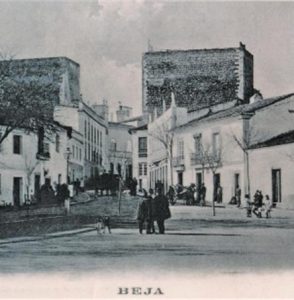
Portugal’s 1925 Election: The End of the First Republic
On this day, a hundred years ago, on 8 November 1925, Portugal held its last democratic parliamentary elections of the First Republic, before the military

DANGER Team Retreat in Herdecke
On June 11–12, 2025, members of the DANGER team held a small retreat together with a group of political scientists from across the region in

DANGER project at EPSA 2025 in Madrid
Nils-Christian Bormann, Bruno Della Sala, and Edoardo Viganò presented preliminary research findings from the DANGER project at the 2025 Annual Meeting of the European Political
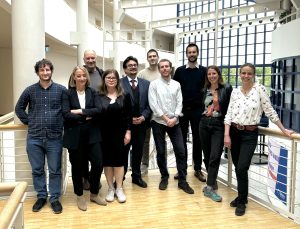
DANGER Workshop: Discussions on political violence and democracy at UW/H
On 22-23 May, Witten/Herdecke University hosted a DANGER project workshop, bringing together leading scholars in the field to discuss the dynamics of political violence and
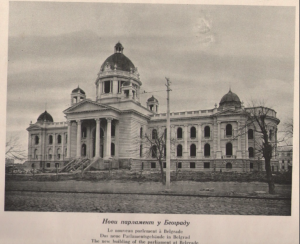
A Century Since the 1925 Elections in Yugoslavia: Lessons on Democracy’s Fragility
Today marks 100 years since the parliamentary elections in the country that was then still called the Kingdom of Serbs, Croats, and Slovenes—an event that
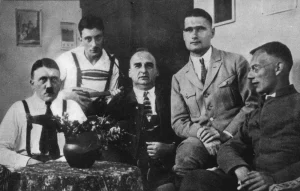
Hitler’s Release from Prison
One century ago, on December 20th 1924, Adolf Hitler, the leader of the National Socialist German Workers’ Party (NSDAP), was released from Landsberg Prison after
Our data
Political Elites & Political Violence in the Interwar Period
Election Results and Governments, 1919-1939
The “Actions by Elites and Leaders” (ABEL) dataset contains information on government and opposition parties at three levels: elections, cabinets, and parties. The data record electoral results, government coalitions, and party characteristics such as their ideological orientation and main constituencies. Future releases will provide information on actions by political leaders that include party bans, power grabs, and restrictions on political competition. The data help us understand how democracies deconsolidate through elite actions, and what elites can do to save democracy: either by banning radical parties or by forming coalitions to protect democracy. We offer downloads of the base data and country reports that introduce readers to the interwar period.
The “Citizen Anger Interwar News” (CAIN) database provides information on the location, time, type, target, and perpetrator of politically violent events in Europe’s interwar democracies. The database includes information on politically motivated violence between the state and non-state actors, for example, clashes between police forces and radical challengers of democracy, violence between non-state actors, for example street fights between communist and fascist militias, and violence against civilians, such as political assassinations. Built around news and archival sources, the database will provide the first systematic mapping of political violence in Europe’s interwar period. It will enable us to study the relationship between political violence and democratic breakdown or survival at great spatial and temporal resolution. We anticipate a release of the data in the first half of 2025.
Publications.
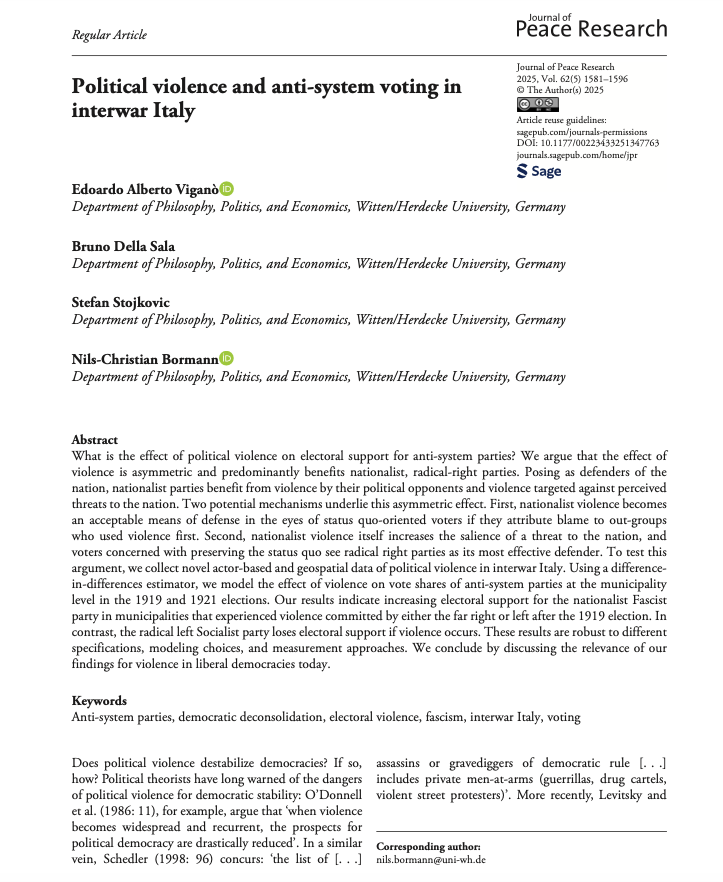
Political violence and anti-system voting in interwar Italy
What is the effect of political violence on electoral support for anti-system parties? We argue that the effect of violence is asymmetric and predominantly benefits nationalist, radical-right parties. Posing as defenders of the nation, nationalist parties
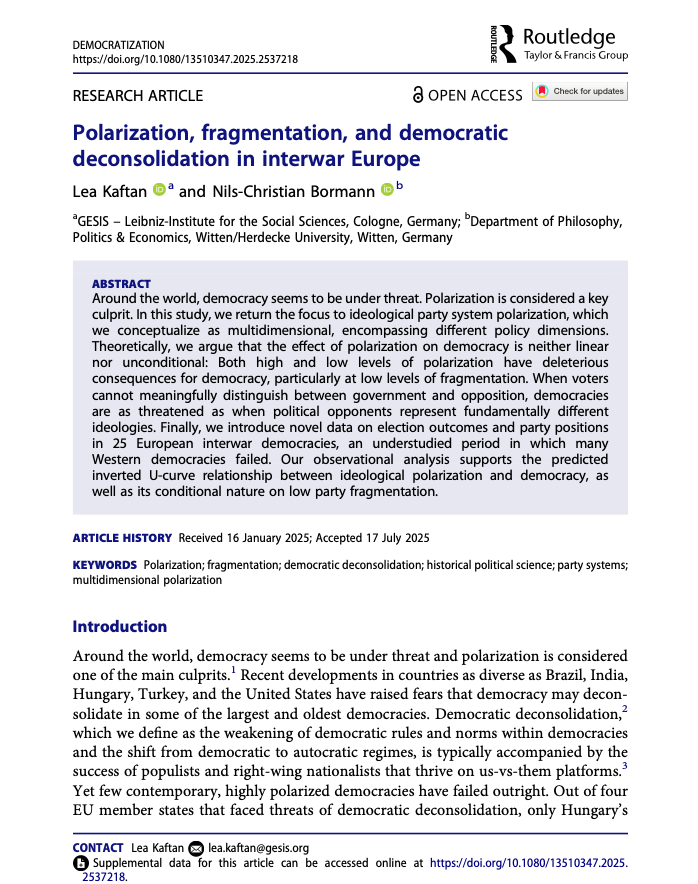
Polarization, fragmentation, and democratic deconsolidation in interwar Europe
Around the world, democracy seems to be under threat. Polarization is considered a key culprit. In this study, we return the focus to ideological party system polarization, which we conceptualize as multidimensional, encompassing different policy dimensions.
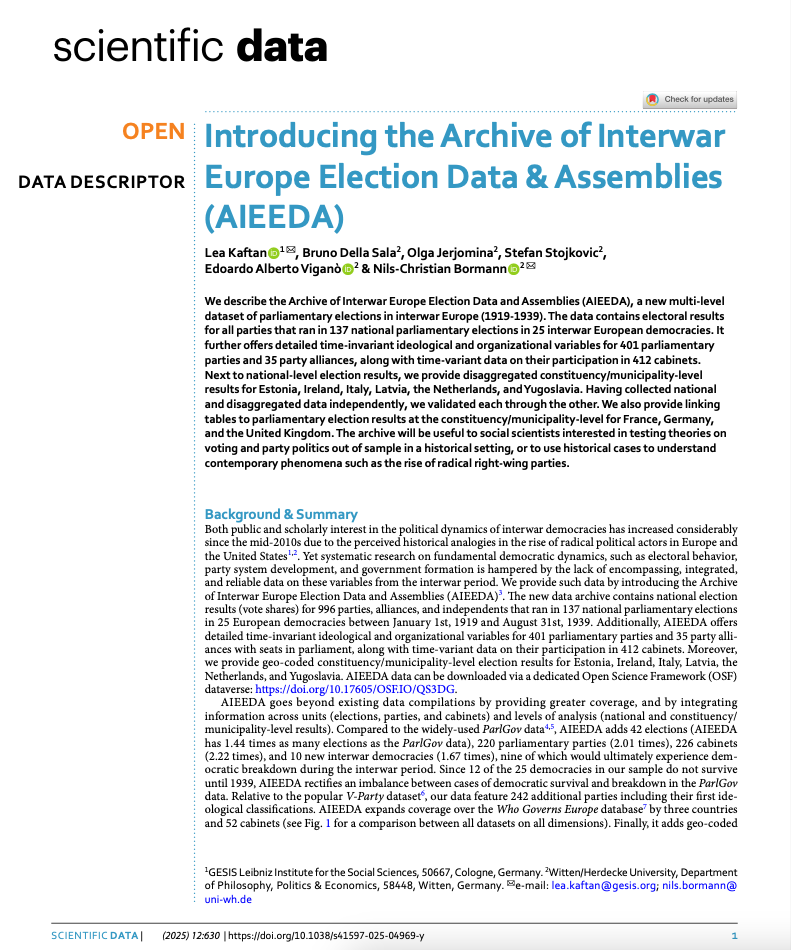
Introducing the Archive of Interwar Europe Election Data & Assemblies (AIEEDA)
We describe the Archive of Interwar Europe Election Data and Assemblies (AIEEDA), a new multi-level dataset of parliamentary elections in interwar Europe (1919-1939). The data contains electoral results for all parties that ran in 137 national
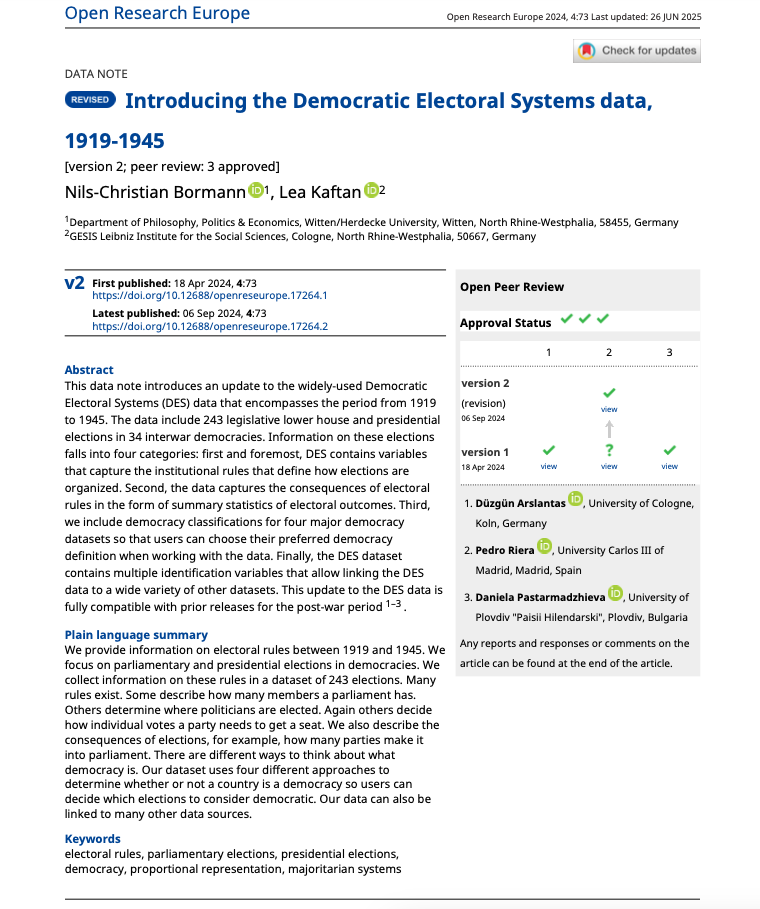
Introducing the Democratic Electoral Systems data, 1919-1945
This data note introduces an update to the widely-used Democratic Electoral Systems (DES) data that encompasses the period from 1919 to 1945. The data include 243 legislative lower house and presidential elections in 34 interwar democracies.
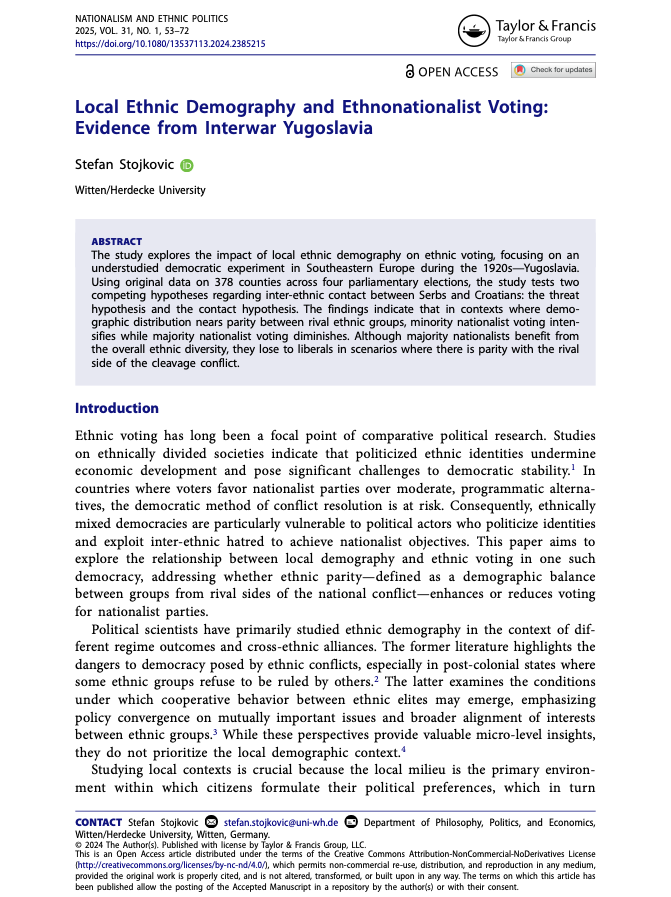
Local Ethnic Demography and Ethnonationalist Voting: Evidence from Interwar Yugoslavia
The study explores the impact of local ethnic demography on ethnic voting, focusing on an understudied democratic experiment in Southeastern Europe during the 1920s—Yugoslavia. Using original data on 378 counties across four parliamentary elections, the study